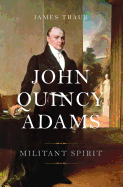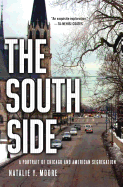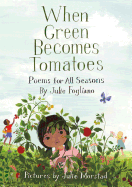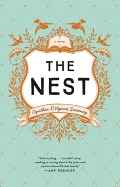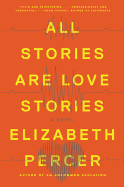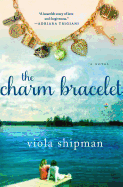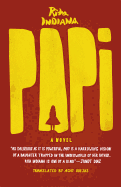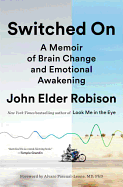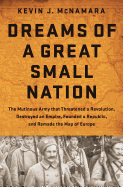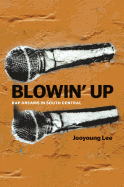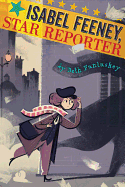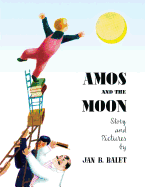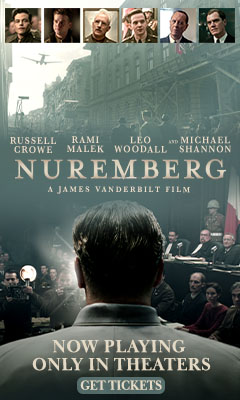Friday, April 1, 2016
April is National Poetry Month, and I've greatly enjoyed a few new titles from Four Way Books while kicking back and drinking something tasty.
Wild with supernatural imagery, the poems in The Halo by C. Dale Young detail a rapid spiral into fever dreams as the narrator recovers from a grisly car wreck and comes to terms with the broad wings that stretch from his naked back. Tensions are high as he confesses, "So few of these transformations are ever a blessing." The metaphysics of it all had me craving the Obituary Cocktail, a ghostly gin martini with bianco vermouth in an absinthe-rinsed coupe.
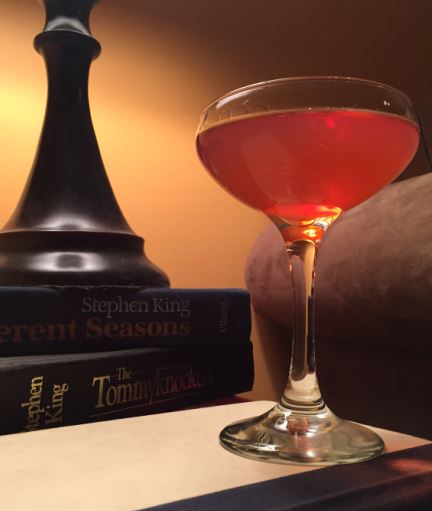
In The Taxidermist's Cut by Rajiv Mohabir, "a queer flutter knocks about your ribs." The poet takes instructive texts on taxidermy and pares down lines and phrases until we're left with a new relic from a painful past. These intoxicating pieces puncture the boundaries of identity with the unflinching grip needed to repurpose the tough hide of a carcass. I'd pair this visceral collection with the Red Hook: whiskey, Punt e Mes, maraschino liqueur and cherry garnish.
There are a lot more where these came from, too. With five more titles out this spring, Four Way Books continues to publish an impeccable list of lovely and provocative poetry. So maybe T.S. Eliot was wrong about April after all. --Dave Wheeler, associate editor, Shelf Awareness
The Nest
by Cynthia D'Aprix Sweeney
Tolstoy wrote that "each unhappy family is unhappy in its own way," but readers of Cynthia D'Aprix Sweeney's The Nest will find that New York's Plumb family mirrors the same dysfunctions and deceits that many of us hide from our blood kin--money troubles, love troubles and trappings of modern life that make human interactions so volatile.
Siblings Leo, Jack, Melody and Bea's woes revolve around the trust fund they've been waiting to inherit into their 40s, the titular nest egg, and when Leo's philandering lands him in a legal settlement, the Plumb family finds itself scrambling for resources. After the car accident in the first chapter, in which an on-road sexual exploit results in a caterer losing her foot, the Plumbs' sumptuous world unravels like an ill-made cashmere sweater. Jack's struggling antiques store begins to flounder while his new husband remains unaware; Bea's stalled writing career haunts her; expensive tuition looms in Melody's future as her twins finish their junior year of high school. The Nest is a novel about expectations--how we nurture them and then recalibrate them against life's inevitable friction.
It would be an oversimplification to say that The Nest focuses on the way a family and the individuals that comprise it rebuild in a sturdier likeness of their old selves. Sweeney's compulsively readable prose makes every plot twist and fraught financial downturn seem like a punch in the center of one's gut, and it's this impact that gives The Nest its wings. --Linnie Greene, freelance writer
Discover: The Nest chronicles a family's struggle after its trust fund dries up.
All Stories Are Love Stories
by Elizabeth Percer
All Stories Are Love Stories makes good on the promise of its title by reshaping a fictional disaster story into one of love. In Elizabeth Percer's follow-up to An Uncommon Education, an earthquake hits San Francisco on Valentine's Day, introducing danger and fear into the complicated lives of a diverse cast of characters. As the earthquake sets off a chain reaction of catastrophic events, bonds between couples or former couples across the city are tested or reignited by the experience. Max and Vashti--who considered their relationship long buried after years of recrimination, poor life choices and guilt--become trapped together in the ruins of the Nob Bill Masonic Auditorium. Gene is separated from his ailing lover, Franklin, and treks across the ruined San Francisco cityscape in an attempt to reunite with him.
Of all the love stories Percer tells in her novel, perhaps the most convincing is that of her own love for San Francisco. It's impossible to ignore the romance between the author and her setting on display in charming lines such as this one: "Every morning in San Francisco was a bit like waking up on the edge of the earth: beautiful and damp and wild, full of the strange music people make, open-armed, into the wind." Even the most jaded reader can be moved by Percer's conception of San Francisco as a place where people with broken or toxic families can form new ones out of nothing more complicated than love. --Hank Stephenson, bookseller, Flyleaf Books
Discover: All Stories Are Love Stories is a frighteningly plausible vision of San Francisco after the Big One hits, and of relationships that blossom or persist afterwards.
The Charm Bracelet
by Viola Shipman
A small, summer resort town on the shores of Lake Michigan during Memorial Day week is where three generations of women reunite in The Charm Bracelet. Lolly, the aging matriarch, is in the early stages of mild cognitive impairment. Afraid she is losing her memory, Lolly seeks to pass down the stories of her life, recounting them via treasured charms on an heirloom bracelet. Each charm conjures significant events in Lolly's life, going back to her grandmother, who emigrated from harsh conditions in Ireland to the United States.
Lolly's daughter, Arden, is a jaded divorcée, a writer who works for a high-powered Chicago magazine. Arden is the antithesis of her mother, whose preachy, sometimes philosophical, approach to life has never appealed to her--e.g., "The only things we can control are our happiness, our destiny, our impact on others." It is Lauren, Arden's artistic college-aged daughter, who is inspired by her spirited, resilient grandmother. While Arden and Lauren strategize how to help Lolly, Lauren's reminiscences and interest in her grandmother's charm bracelet stories--along with her appreciation for the charms Lolly presented to Arden and Lauren over the years--offer stepping-stones between the past and present, ultimately building a bridge to the future that empowers all three women.
Viola Shipman is the pen name of memoirist Wade Rouse (America's Boy) who pays tribute to his own grandmother is this poignant, sentimental story honoring family lore and legacy. --Kathleen Gerard, blogger at Reading Between the Lines
Discover: A charm bracelet evokes memories of the past and hope for the future for three generations of women in one Michigan family.
Papi
by Rita Indiana
In the first lines of Papi, author Rita Indiana positions the central character of her novel somewhere along the spectrum of actuality and feverish nightmare. The narrator, Papi's eight-year-old daughter, describes him as a cross between Freddy Krueger and Jason, though what's scariest is the effect his terrifying power has on his family: "Sometimes when I hear that scary music," his daughter says, "I get really happy cuz I know he might be coming this way." Despite Papi's devastating violence, his daughter conflates her fear with excitement, and instead of running from him the way she should, she's drawn to him.
Papi is a neglectful man, a drug dealer from the Dominican Republic. To his smitten daughter, though, the hold he has over his fearful community looks affectionate and fatherly. Because the girl is never truly aware of what is going on, the action of the novel vacillates between stark reality and the twisted fantasies of a child. There is, purposefully, no reliable timing or place. In one passage, she witnesses Papi murder a man and it goes by in a single sentence: "I open the door and raise my doll to show the fat man my watch, but the fat man is on the ground while Papi tries to wake him up with a kick to the head as he cleans his pistol."
The scene is emblematic of the novel, told in the rhythmic, unfocused style of a child trying to reconcile a naïve trust of her father with the horrible actions she sees him take. --Josh Potter
Discover: In this rhythmic and feverish novel, it's hard to tell where fantasy ends and terrifying reality begins.
Biography & Memoir
John Quincy Adams: Militant Spirit
by James Traub
As a student attending Harvard College, John Quincy Adams worried his generation was doomed to mediocrity. His father's generation had cast off the yoke of British rule and founded a new nation. John Quincy saw in himself and his peers a worrisome complacency, even immorality, and a lack of some great cause to strive toward. These concerns came from a young man who had already traveled throughout Europe and Russia and was fluent in multiple languages. This deep-set need to achieve, fostered by the overbearing parenting of John and Abigail Adams, drove John Quincy for the rest of his life. So, too, did another inheritance--an ironclad moral sense. John Quincy's ambition and inflexible standards made him president but, like his father, for only one term. His conscience made him a poor political player, yet it also made him a moral beacon. During his time in the House of Representatives after his presidency (the only ex-president to ever make such a move), John Quincy became the congressional voice for a movement gaining ground during his elder years: the abolition of slavery.
John Quincy Adams: Militant Spirit by James Traub (The Devil's Playground) is a sharp portrait of the fascinating statesman who helped bring about the consolidation of the United States from fragile upstart into emerging major power. Traub's plentiful source material--Adams kept a journal throughout most of his life--reveals a complex man: a Puritan patrician, a genius diplomat, a villain to many and hero to a hopeful few, including the Amistad defendants. John Quincy Adams is a magnificent work. --Tobias Mutter, freelance reviewer
Discover: This is a monumental biography of John Quincy Adams, sixth president of the United States.
Switched On: A Memoir of Brain Change and Emotional Awakening
by John Elder Robison
In Look Me in the Eye, John Elder Robison wrote about his adult diagnosis of Asperger syndrome. In Switched On, Robison details his participation in a research project at Beth Israel Hospital that used transcranial magnetic stimulation (TMS) to ignite certain key areas of his brain that focus on the ability to read people's emotions through their facial and body gestures. The inability to connect emotionally is a common trait in people with Asperger's; they are often seen as detached because they miss the nonverbal signals people send out on a constant basis. TMS works on the premise that when it "adds electromagnetic energy to the neural networks inside your head, it helps them build new connections, and it reinforces the connections we [the doctors] want to strengthen." But because this was a research project, the subjects and the doctors didn't quite know what to expect once the stimulations had been performed.
Robison shares with readers his excitement at the possibilities, his fears of any possible changes and the actual, sudden leaps in understanding and perceptions that transpired after each experimental session. These personal moments are intertwined with discussions on the TMS process, Robison's former work with electronic circuitry and the way his family and friends reacted to the changes he experienced over time. Though a bit wordy, Robison's experiences with TMS and Asperger syndrome provide a great view of new research into the fascinating world of the human brain. --Lee E. Cart, freelance writer and book reviewer
Discover: Well-known for his frank conversations about Asperger syndrome, John Elder Robison continues the discussion as he undergoes experimental treatments that change his life.
History
Dreams of a Great Small Nation: The Mutinous Army that Threatened a Revolution, Destroyed an Empire, Founded a Republic, and Remade the Map of Europe
by Kevin J. McNamara
The Czech and Slovak peoples were two of many oppressed ethnic groups in the Austro-Hungarian Empire. For Tomáš Masaryk, Czech professor and lifelong advocate for independence, the outbreak of World War I was the perfect chance to establish a free state. Meanwhile, Czech and Slovak soldiers were forced into the Austro-Hungarian military to fight in Russia, where they surrendered or deserted in huge numbers and joined the Tsar's army to wage war on their former masters.
Masaryk convinced Allied leaders to back the creation of a united Czecho-Slovak state. In Russia, as Tsarist rule collapsed, the Czech and Slovak units fighting for the Russian army became the autonomous Czech Legion. These soldiers, some 40,000, then were pledged to fight in France. The only problem was getting there. The Legion began an epic journey across Russia via the Trans-Siberian Railway to Vladivostok on the Pacific, but a fatal incident between the Legion and Hungarian POWs spiraled out of control. Red Army founder Leon Trotsky ordered the Legion to be disarmed and imprisoned. The Czechs and Slovaks not only resisted, but went on to capture nearly the entire railway and the major cities along that route. Foot-dragging by the Allies left thousands of Legion soldiers desperate to fight for a free homeland trapped instead in the turmoil of the Russian Civil War.
Kevin J. McNamara highlights this bizarre and heroic story in Dreams of a Great Small Nation. Much of his extensive source material is only recently available, and he uses it well. The brave misadventures of the Czech Legion deserve the wider recognition this fascinating history should provide. --Tobias Mutter, freelance reviewer
Discover: A legion of Czech and Slovak soldiers trying to fight for an independent state instead became key players in the Russian Civil War.
Social Science
The South Side: A Portrait of Chicago and American Segregation
by Natalie Y. Moore
Journalist Natalie Y. Moore (Almighty Black P Stone Nation) grew up in a middle-class South Side Chicago neighborhood. Despite the many problems she discusses in The South Side, she loves it, calling it "a magical place," the cultural and political heart of black America, home of Ida B. Wells, Sam Cooke and Michelle Obama. As the area's bureau reporter for Chicago's NPR station, Moore found that every dysfunctional story could be traced down to the same root: "from housing to education to crime to food access: segregation is the culprit."
Moore combines her personal and family stories with history, scholarly data and investigative journalism to build a comprehensive vision of Chicago, its past, present and potential future. Housing is her greatest subject--the redlining, white flight and white policies that intentionally built this segregated town. She takes readers to her childhood corner store, her schools and first apartment, tells how black homeowners built and lost thriving communities, and how gleaming new public housing declined into vertical slums. Moore explains the effect of segregated neighborhoods on food access and public education, and in a chapter titled "We Are Not Chiraq," she analyzes and debunks the popular caricature of the South Side as a war zone. She confronts black romantic nostalgia for early Black Belt segregation, and balances that with her love of black and other culturally distinct neighborhoods. This is an essential book for anyone interested in the history and current state of race in the urban U.S. --Sara Catterall
Discover: The South Side is a comprehensive iconoclastic investigation of segregated black Chicago, past and present.
Performing Arts
Blowin' Up: Rap Dreams in South Central
by Jooyoung Lee
Jooyoung Lee spent five years among rappers at the Los Angeles KAOS Network, observing and shooting video of its weekly hip-hop open mic Project Blowed. In the streets of South Central's Leimert Park neighborhood (as one performer reminds him, "This is the 'hood.... Don't be fooled by the palm trees"), Lee gathered material for Blowin' Up, his engaging study of young black men trying to build enough rap skills to blow up, from a corner spitter to a professional recording star. Lee acknowledges that it took some time for a Korean American sociologist at UCLA to win the trust of black ghetto rappers, but when he put his funk-style popper dance skills on display in a krumping battle, the MCs were impressed and began to share their personal stories. Individual anecdotes from the likes of Big Flossy, Choppa, Trenseta and NA ("No Alias") give Blowin' Up its authenticity and narrative flow.
Lee's research follows some 30 rappers from early ciphers (workshops where established peers advise them to "Get your bars up, homie... and practice your hooks"--sort of a hip-hop Iowa Writers Workshop) to a paying MTV spot or club gig. Like a playground baller with a sweet dribble, a rapper spitting frees needs to learn how to work with a team and manage his branding if he wants to go pro. Very few make it, but these young men live in an environment stacked against them with what Lee calls "existential urgency." They have few safety nets and no good Plan B, so blowin' up is their only way out. --Bruce Jacobs, founding partner, Watermark Books & Cafe, Wichita, Kan.
Discover: Sociologist Jooyoung Lee chronicles the hard lives of South Central L.A. black rappers trying to perfect their craft and score a professional music contract.
Children's & Young Adult
When Green Becomes Tomatoes: Poems for All Seasons
by Julie Fogliano, illus. by Julie Morstad
It's spring, and the birds are singing, "each tweet poking/ a tiny hole/ through the edge of winter." A fashionably bundled-up girl lies stomach-down on the snow to get a nose-to-nose look at a crocus blooming up through the icy whiteness: "a tiny, blue hello."
In When Green Becomes Tomatoes, Julie Fogliano (And Then It's Spring; If You Want to See a Whale) presents her playful, breathtaking poems as journal entries, organized by season for a full year. It's genius. Spring is "muddy mud," "one blue mitten," "the forever rushing daffodils/ wished they had waited" and "everyone is soggy/ but the sometimes sun/ is just enough/ for a robin." Summer is "when green becomes tomatoes" and "those peanut butter sandwiches/ a little bit salty/ and warm from the sun." Fall is "waiting for sweaters," "where notebooks are new" and "pumpkin toss/ pumpkin out/ pumpkin someday/ pumpkin sprout." Winter is an old green bike "suddenly beautiful/ with snow on top." In Fogliano's skillful hands, the sights, smells, tastes and sounds of the unfolding seasons reflect fleeting pleasures, joy and melancholy, discovery and loss, anticipation.
Julie Morstad (Julia, Child; This Is Sadie; Swan) invites readers along on Fogliano's beautiful year-long journey with winsome, pleasingly textured scenes in gouache and pencil crayon. Children of many colors tromp through fields, swim, dig in the sand, play in leaves... and creatures from squirrels to cows populate this vibrant, dynamic world where strawberries are furious and butterflies are anxious, depending on the season. Say yes. --Karin Snelson, children's & YA editor, Shelf Awareness
Discover: In this splendidly illustrated, off-the-charts-charming picture book, the four seasons leap to life in fresh and breezy poems.
Isabel Feeney, Star Reporter
by Beth Fantaskey
Not everyone would run toward the sound of a gunshot in a dark alley, but 10-year-old Izzie Feeney is not just anyone.
Izzie saw the fancy Miss Giddings heading into the alley with a tall man in a long overcoat, and she surely can't abandon the kind lady who not only regularly buys her newspapers, but leaves a tip. As Izzie dashes to the crime scene, she discovers that Miss Giddings is fine, but the dead man isn't. So begins Isabel Feeney, Star Reporter by Beth Fantaskey (Buzz Kill), an entertaining novel about a scrappy newsgirl in 1926 Chicago who wants more than anything to be a crime reporter like her idol, Maude Collier, who writes for the Chicago Tribune. (An author's note indicates that Maude is fictional, but based on the reporter Genevieve Forbes Herrick.) Little does Izzie know that her impulsive act will lead her straight to Maude Collier... and into Chicago's dangerous world of "diamond-studded gangsters" and "ruthless rumrunners."
If Miss Giddings didn't kill her boyfriend in that alley, who did? And was he really connected to bootlegger Al Capone? Izzie takes it upon herself to solve the murder so her benevolent friend doesn't linger on Murderess's Row. She ropes Miss Gidding's polio-stricken son into her detective work, and the murdered mobster's daughter, wanting revenge, gets into the act as well. Izzie is an endearing latchkey kid: blunt, unwittingly funny and doggedly determined. Readers will cheer her on as she fights for the truth and for her newfound friends. --Karin Snelson, children's & YA editor, Shelf Awareness
Discover: A 10-year-old newsgirl and wannabe reporter in 1920s Chicago lands in the middle of a murder mystery when she hears a gunshot in a back alley.
Amos and the Moon
by Jan B. Balet
Jan B. Balet (The Five Rollatinis) is the German-born author-illustrator behind the warm, wonderful picture book Amos and the Moon, originally published in 1948.
Amos's bedroom is glowing with "a strange blue light" coming out of his mirror! It is the moon. Amos thinks, "Tomorrow the moon and I will play together. The moon will always live in my mirror." The next morning, the moon is gone, so Amos heads out to the local shops to search for it. Amos asks the mustachioed iceman, "Have you seen my moon?" The iceman plays along: "It is a very hard thing to hold onto the moon, you know." He gives Amos a piece of ice to show that it will melt away, just like the moon. John, the elegant junkman, gives him a toy horse on wheels for the boy's "long journey" to find the moon. All the shopkeepers--except the inexplicably angry barber--give the moon-seeking boy a present, from a lemon to a piece of bologna. The laundryman, Joe, gives Amos a birdcage to hang in front of his mirror because "maybe once or twice a month, you will catch the moon, and he will be with you for a little while."
Amos and the Moon is a lovely introduction to the wondrous movements of the moon and a touching ode to a small, kindly community that's big on personality. Balet outdoes himself with enticing illustrations of the shopkeepers' colorful, artfully composed windows--from Zirimis Pastry Shop to C. Wegelin Swiss Watchmaker--all bursting with curiosities, cakes and clocks. --Karin Snelson, children's & YA editor, Shelf Awareness
Discover: In Jan. B. Balet's winning 1948 picture book, Amos sees the moon in his mirror and scours the neighborhood to retrieve it when it disappears.
| Advertisement nuremberg--now playing in theaters |


